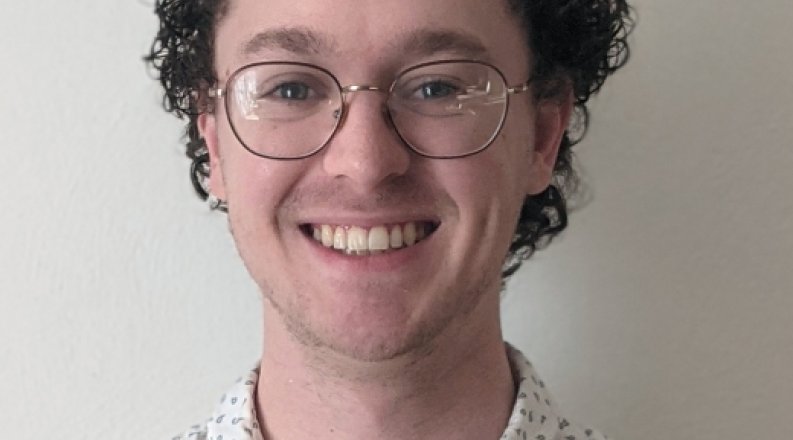Mitchell Kerver, a PhD candidate in Physics, has been awarded a graduate fellowship from the Center for Nuclear Femtography (CNF). The mission of the Center for Nuclear Femtography is to coalesce the expertise in nuclear physics, computational science, mathematics and visualization to establish the world-leading center for three-dimensional imaging of nucleons and nuclei. The center, funded by the Southeastern Universities Research Association (SURA), trains the next generation of scientists and advances the role of the Commonwealth as a focus for emerging technologies.
Mitchell came to ODU in 2017 and has continued to be recognized for excellence in classes, teaching, and research. The award of $12,000 will enable Mitchell to work on projects related to the CNF core mission. Mitchell is currently working with Dr. Charles Hdye, and his research focuses on Deep Virtual Exclusive Scattering.
Deep Virtual Exclusive Scattering (DVES) provides a means to produce a 3D spatial mapping of the quarks and gluons inside the proton and other atomic nuclei. Simulations of this process involve calculating the "cross-section" for many millions of events, which requires intense computational effort.
During simulations, rather than calculating the cross-section by brute force, it is advantageous to compute a lattice of points from a model beforehand and then extract the values needed through linear interpolation. The goal of Mitchell's project is to use Old Dominion University's image-to-mesh software to generate a database of tessellations of the physics quantities needed for those calculations. These tessellations are formed adaptively to the data and have multiple benefits over a simple lattice of data. This leads to smaller file sizes and fewer data points to calculate, thus reducing the computational power needed.
Alongside the development of this database, Mitchell will work to develop a code that can extract the data from the tessellations and calculate the cross-section for simulations of experiments at Jefferson Lab and the planned Electron Ion Collider (EIC). This fellowship provides an excellent opportunity for Mitchell to be involved in a multi-disciplinary collaboration with both physicists and the computer science department at ODU.



